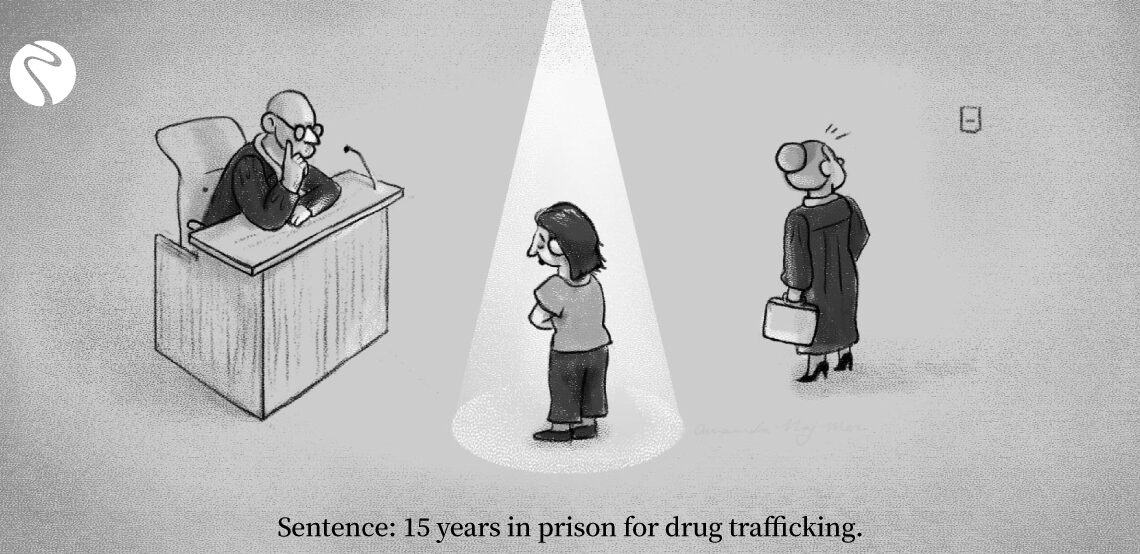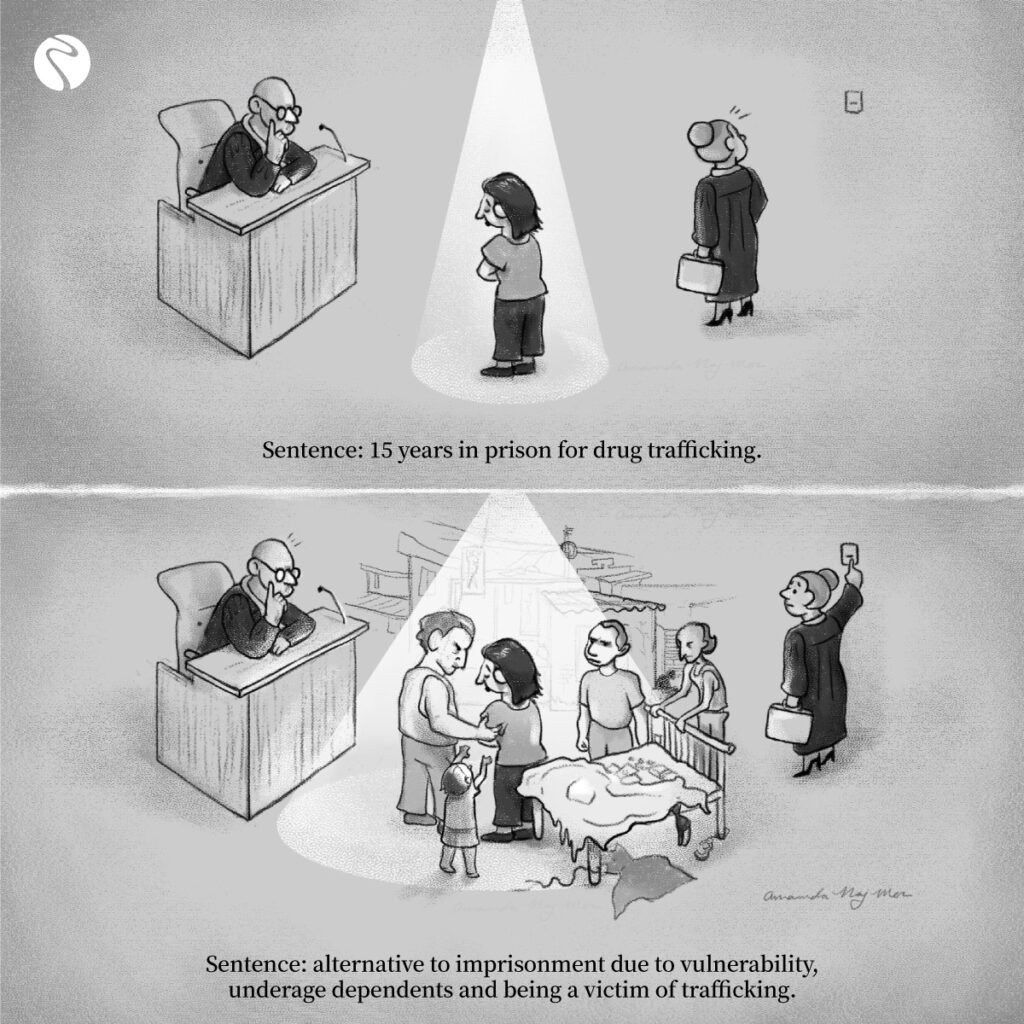Beatriz López Lorca and Mario Germán Sánchez González are COPOLAD III experts in penal alternatives.
With a rate of 30 women deprived of liberty per 100,000 inhabitants, the female prison population rate in Latin America is the highest in the world. On International Women’s Day, it is essential to reflect on the unique challenges women face in the criminal justice system, especially when it comes to minor drug-related offenses. Deprivation of liberty for such offenses has profound and often devastating repercussions on the lives of thousands of those deprived of their liberty, both personally, as well as in their families and communities.
In recent times, criminal policy on drugs has been characterized by a maximization of criminal law, what does this mean? A greater use of criminal law as a tool to combat crime and guarantee social order, which in this case is materialized in the lack of proportionality in the treatment of minor drug offenses, the excessive use of pretrial detention, and a clear commitment to prison as the main retributive strategy; a space in which criminal alternatives are significantly reduced.
This approach has also permeated the general population, conditioning its understanding of the drug phenomenon and associated crimes, leading to demands for more control and security that ultimately translate into a reinforcement of drug interdiction policies and, of course, greater punitiveness and criminal populism.
As for women, who represent 8% of the prison population in Latin America, their incarceration is on the rise; reporting a 56% increase of women in the prison population between 2000 and 2022, compared to a 24.5% growth in the general prison population in the same period.
The consequence: a vicious cycle that needs to be broken.
📊In Brazil, Chile, Costa Rica, Panama and Peru there is more than 30% women imprisoned for drug-related charges, compared to the percentage of men.
👉🏾COPOLAD III supports proportionality and penal alternatives in cases of minor offenses.
📽️Beatriz López Lorca, PhD in Criminal… pic.twitter.com/LF6FZDmm8O
— COPOLAD (@ProgramaCOPOLAD) March 6, 2024
Different Impacts
Women incarcerated for minor drug offenses experience a number of differentiated impacts compared to their male counterparts. In addition to the social stigma associated with incarceration, many women face the loss of custody of their children, which can have lasting emotional and psychological consequences. Furthermore, the lack of adequate access to mental health services and drug treatment programs for women with problematic drug use within prisons exacerbates existing problems and hinders successful inclusion into society once they are released.
Incarceration does not address the structural causes that lead women to engage in drug-related activities. Poverty, social exclusion, lack of access to services, resources and meaningful opportunities are underlying factors that drive many women to enter the lowest rung of the drug trade as a means of livelihood. These determinants of criminal behavior are, in turn, factors of recidivism, which confront us with a panorama of inequalities and social asymmetry.
In this context, it is urgent to move towards a new criminal rationality in terms of proportionality and the search for alternatives to incarceration for these crimes and, in particular, for women. To advance in a policy dialogue between the branches of government and institutions at all levels, involving the perspective of civil society and generating ways of working that comprehensively address the inequalities that are the origin and basis of the problem.
International Women’s Day is a good time to reflect on and re-evaluate our policies and practices in relation to women in the criminal justice system, particularly with regard to minor drug offenses. Adopting a more humane and community-centered approach not only benefits individual women, but also contributes to building more just, equitable and sustainable societies for all.
The COPOLAD III Program is working in this direction, that of improving the response capacity and proportionality of penal frameworks in the face of drug-related challenges, as well as in the development of alternatives to detention or imprisonment aimed at reducing recidivism. Along this path, COPOLAD has been accompanying national processes (Costa Rica; Paraguay; Trinidad and Tobago and, soon, the Dominican Republic), while generating articulations with regional organizations that work along these lines, and that have the potential to leverage changes at the regional level and guarantee the sustainability and scaling up of the results that COPOLAD supports, as is the case of COMJIB and AIDEF.
Cartoon on penal alternatives made by the COPOLAD III team with Costa Rican illustrator Amanda Nájera.







